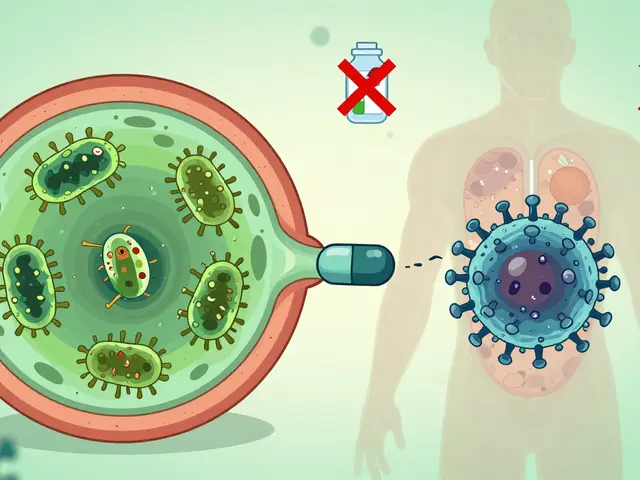Hyperprolactinaemia — what it is and why it matters
High prolactin levels, or hyperprolactinaemia, can mess with periods, fertility, libido and bone health. It’s common enough that doctors check it when people have unexplained menstrual changes, low sex drive, or galactorrhoea (milk production when not breastfeeding). A simple blood test tells the story, but the cause and the fix can vary a lot.
Common causes you should know
There are a few main reasons prolactin goes up. A benign pituitary tumor (prolactinoma) is a leading cause. Certain medications also raise prolactin — think some antipsychotics, metoclopramide, and some antidepressants. Low thyroid function (hypothyroidism) can push levels up, and pregnancy or chest wall irritation are other possibilities. Sometimes the rise is temporary or isolated and needs only monitoring.
Asking your doctor about medication side effects is smart — stopping or switching a drug often fixes the problem. If you suspect a drug is involved, don’t stop it yourself; talk to your prescriber first.
How doctors check and track it
Testing starts with a fasting blood prolactin level, usually drawn in the morning. If that’s high, the next step is to look for treatable causes: review your meds, check thyroid function, and confirm pregnancy if relevant. If levels are strongly raised or symptoms are significant, an MRI of the pituitary gland follows to look for a prolactinoma.
Small rises sometimes repeat as a one-off. If they persist, expect periodic blood tests to see if levels fall or climb, and imaging only if the pattern or symptoms suggest a tumor.
Treatments and what to expect
Treatment depends on cause and symptoms. For prolactinomas, dopamine agonists like cabergoline and bromocriptine are the first-line drugs. They shrink most tumors and lower prolactin well. Side effects can include nausea, dizziness and very rarely impulse-control changes — your doctor will explain what to watch for.
If a medication is the trigger, switching or stopping it often brings prolactin back to normal. For hypothyroidism, thyroid replacement fixes the issue. Surgery is reserved for tumors that don’t respond to meds, press on nearby structures, or if someone can’t tolerate medical treatment.
Follow-up usually means repeat bloodwork and, for tumor cases, MRI scans to track size. Fertility often improves after treatment, and bone health benefits from restoring normal hormone balance.
Need meds? Dopamine agonists require a prescription. If you use online pharmacies, pick verified pharmacies, keep your prescription on file, and double-check that the product is from a licensed source. Always discuss treatment choices and monitoring with your healthcare provider — managing prolactin is usually straightforward once you know the cause.

Hyperprolactinaemia and Exercise: The Benefits of Physical Activity
In my latest blog post, I explored the topic of Hyperprolactinaemia and its relationship with exercise. Through my research, I discovered that engaging in regular physical activity can significantly help in managing the symptoms of this hormonal imbalance. Exercise not only aids in reducing prolactin levels but also improves overall mental and physical well-being. Plus, incorporating activities like yoga and meditation can further alleviate stress, which is a common trigger for Hyperprolactinaemia. So, don't forget to stay active and make exercise a part of your daily routine for a healthier, happier life!
view more


